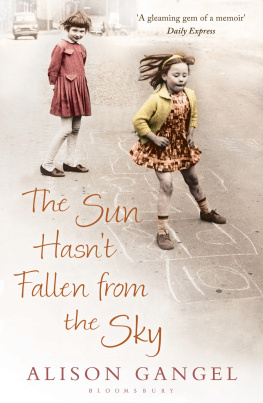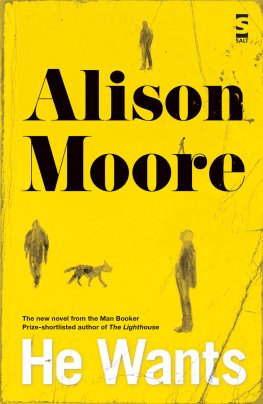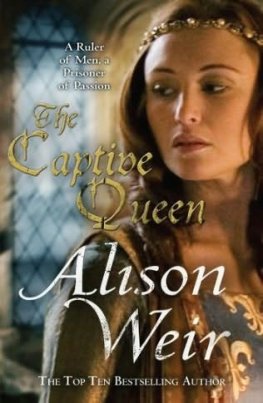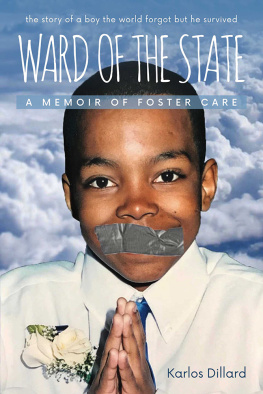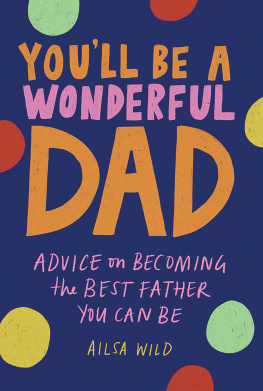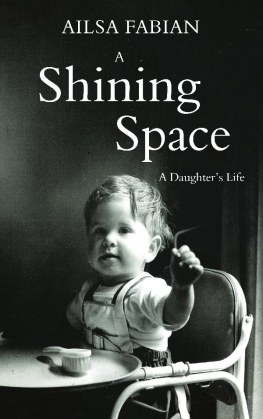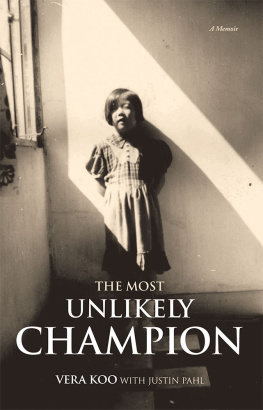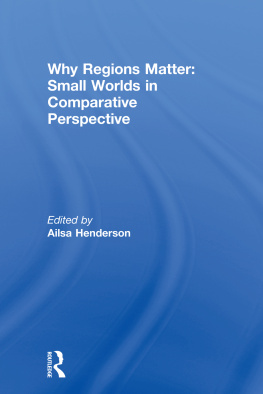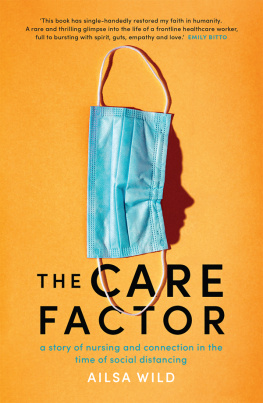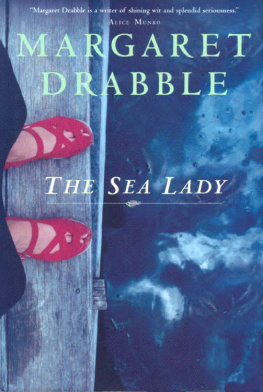I love the acknowledgements page. I love to look for clues about the writer, find out a bit more about the process theyve gone through, and I feel slightly cheated when its just a list of names that mean nothing to me but everything to the people mentioned. I like acknowledgements with details, especially when the author is specific about the ways in which people have helped. Needless to say, I do not intend to short-change the reader or my friends in this, the best of all possible tasks.
Huge thanks to Sheila Mulhern for her support and encouragement from the get-go and her regular invitations to perform at the Blue Room in Newcastle.
Deepest thanks to James Welsh, Paul Bodie, Isabel Garford and Chris Algar for being part of the Mark Toney writing group which knocked the majority of the memoir into shape. Their suggestions and observations were second to none and developed my writing immeasurably. Particular thanks to Chris Algar for the use of her cottage in Marske-by-the-Sea to complete the book. Im indebted.
Special thanks to my two best friends, Isabel Garford and Geoff Weston, for their unwavering support and friendship and not allowing me to give up when I all but had. And an extra thank you to Geoff for the very flattering author photograph.
Special thanks to Margaret Wilkinson, a tutor par excellence.
Particular thanks to Marion Urch at Adventures in Fiction. The mentoring was invaluable, but more importantly the validation as a writer was priceless.
A big thank you to my sister Moira who made me read extracts to her over the phone, who laughed at all the right bits and went quiet when it got to the sad bits.
Huge thanks to everyone at HHB Literary Agency, especially Elly James, who championed this book from the start and worked tirelessly to help me get it into the best possible shape for submission. She is a truly impressive young woman and Im a huge fan of hers.
Finally, thanks to Alexandra Pringle and everyone at Bloomsbury Alexa von Hirschberg, Katie Bond, Sue Pearse, Adrian Downie, Holly Macdonald, Emma Daley, Tr m-Anh Doan for making me feel so welcome and appreciated. In particular, heartfelt thanks to Anna Simpson for her meticulous, sympathetic editing.
Spring, 2000
I stood at the graveside. I was one of about two hundred. I knew the minister was at the front of the crowd, doing the whole we commit this body to the ground thing, but I couldnt really hear him. It didnt matter, it helped just to stand quietly and remember him. An ice-cream van jangled Summer Holiday in the distance. An old woman in front of me turned and scowled in the direction of the sound.
I felt as if I should have been up at the front, just behind his family. I didnt like being at the back. I didnt like sharing him with all those other people. I imagined the crowds parting, once they realised who I was and what we had meant to each other.
A sound from the front of the crowd built until it reached the back, as more and more voices joined in. When the Roll is Called up Yonder . My mouth moved but the sounds couldnt get past the hard fist of pain in my throat. The singing fell into four-part harmony. It was perfect. Mr Shaugnessy would have liked it. It reminded me of the Mission Hall in Greenock.
When the singing stopped, the minister said something else but he was too far away for the sound to carry properly. I prayed hard that Mr Shaugnessy was right about the God he had so much faith in. I prayed hard that his God was looking after him. I pictured him in the whitest, most comfortable of robes, sitting at Gods right hand, smiling that smile of his.
The mourners started to scatter. They walked slowly, heads down. Their team had lost. They made their way back to the main hall at the Homes for tea and sandwiches.
It wasnt like my mothers funeral, eight years earlier. Hers was very small; a quiet, bemusing affair. I hadnt been able to work out what I was supposed to feel. Id wanted Morag to be there; shed tried but she hadnt been able to make it.
The main hall hadnt changed; the same curtains covered the front of the stage, the piano still sat in the corner. I checked the gallery for ghosts.
I scanned the faces in the crowd for Vera. I recognised a few house-parents but she wasnt amongst them. Shed left to get married and I hadnt seen her since. Whod be Vera, eh? Whod want her head and her conscience?
Mr Shaugnessys son stood in front of me. He held out his hand.
Thank you for coming, he said. He was Mr Shaugnessys double. It was comforting to look at him.
Ailsa Dunn, I told him. I used to live here and Mr Shaugnessy taught me piano. I shook his hand.
Oh youre Ailsa Dunn, he said and started smiling and nodding his head. Dad often talked about you and how talented you were.
It was like some sort of floodgate had opened. My hands couldnt wipe away the tears fast enough. I scratted around in my pockets for a hankie. He rubbed the side of my arm and let me get myself together.
So what are you doing with yourself now, Ailsa? he asked.
I coughed the feelings out of my throat. Im Head of Music at a school in Newcastle. I cleared my throat again.
My oh my, he said. He smiled like Mr Shaugnessy; his eyes went big in the same way. And did Dad know youd made a career for yourself in music?
I wiped at my nose with the hankie and nodded. We kept in touch. He sent me old recordings of his favourite pieces Id played; from grade one, right through to grade eight.
He nodded as I spoke.
I listened to them more for the introductions. Ailsa will now play... Hed give you the composer, the opus number if it had one, the day, the date and the year.
His son laughed and clasped his hands together. That sounds like Dad.
We looked at each other and I could tell he understood how important his father had been to me.
Before leaving the Homes, I drove around the familiar paths and avenues. The grounds were beautiful. I took the long way to the main gate, past Cottage 51. I slowed down but I didnt stop. I filled the front seat with tape after tape from the glove compartment until I found one: Ailsa Dunn (1974) piano solos and Trinity College Exam pieces. The tape hissed in the silence. Ailsa will now play...
ALISON GANGEL started her teaching career as Head of Music at a comprehensive school in Newcastle upon Tyne, and now teaches English at a Catholic comprehensive school in Gateshead. She has lived in Newcastle upon Tyne for over twenty years with her daughters Lorna and Jessica. The Sun Hasnt Fallen from the Sky is her first book.
I began writing this memoir in an effort to make sense of a chaotic childhood and its repercussions. To protect the privacy of individuals, a number of names and incidents have been changed and some people from my childhood have not been mentioned at all. As the book evolved, for the sake of a narrative arc, the odd scene was brought forward in time, small embellishments added, dialogue re-created. Despite this, everything here reflects the reality of my childhood, if not in the minute detail of conversations I couldnt possibly remember at such distance then certainly in spirit. I did very much intend, however, to pay some sort of tribute to my music teacher. Everything Ive written about my early love of music and of him is true: my regard for him continues to be deep and heartfelt, my love and gratitude inestimable.
Alison Gangel, November 2010
Autumn, 1968
Give that girl a spotlight, says my da, pointing straight at me. Cmon, Puddin, your turn.
I stand in front of the coal fire and hold onto the sides of my dress. My das holding the bottle of sherry to my mouth like a microphone.
Right, hen, whits it gonnay be?
Ahll sing Big Spender, I tell him.
Everyone claps. Shuggy starts the introduction: Dah Dah-di Dah Doo-Dah .
The minute you walked in the joint (wiggle wiggle)
Next page
